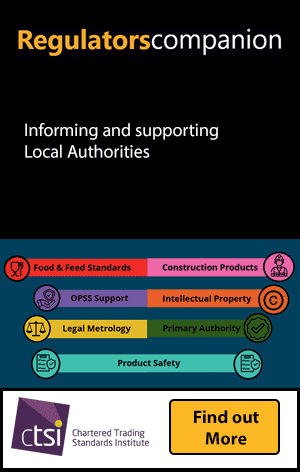Office for Standards in Education (Ofsted)
|
|
|
Gaining from Training – Train to Gain brings benefits but room for improvement remains
Train to Gain continues to give employees the opportunity to secure nationally recognised qualifications and improves their motivation in the workplace, according to an Ofsted review published today. However, the report also reveals too few employees are completing qualifications on time and there is insufficient provision to allow employees to progress to higher-level awards at the equivalent of A level. Skills for Life provision, which includes support for employees’ basic skills in language, literacy and numeracy, continues to be a key area for improvement as identified in the earlier report.
The impact of Train to Gain on skills in employment follows on from Ofsted’s 2007/8 survey and identifies where strengths in Train to Gain provision have been sustained and where further improvements are needed.
The review finds Train to Gain continues to improve employees’ knowledge and self-confidence at work and many employers report improvements in work practice and staff retention. Employers are more involved in their employees’ training and providers are better at improving employees’ technical and practical skills than was found in 2007/8.
Employers valued their employees’ additional skills and benefited from reduced staff turnover, improved work practices or understanding of health and safety. Some employers identified financial savings, with an impact on their ‘bottom line’, while others reported benefits from improved customer service and reductions in customer complaints.
Melanie Hunt, Learning and Skills Development Director said:
'Train to Gain is helping to address the critical issue of developing skills for employment, while also helping employers to compete in a tough economic environment. For many employees, this is the first opportunity they have had to gain a qualification since leaving school.
'However, there is room for further improvement to ensure the programme meets some key challenges. Not enough employees are completing their qualifications within the planned times, some aren’t getting the training they need in skills for life such as numeracy and literacy, while others are missing out on more advanced training and the chance to achieve higher level vocational skills.'
Regulatory requirements remained a key driver for participation. Over half the provision inspected in 2008/09 was in health and social care or construction, sectors where there are legislative or industry requirements for training. The 2007/08 survey found recruitment to Train to Gain via the skills brokerage service was poor. Skills Brokers liaise with employers to identify their skill needs and then provide a matching service with appropriate training providers. This remains an area for improvement in this 2008/09 review.
The report includes the following recommendations:
The Department for Business, Innovation and Skills should focus on improving the uptake and quality of Skills for Life training provided through Train to Gain. DBIS should also continue to develop eligibility criteria to enable employees to progress to higher-level awards including at level 3 where that is appropriate.
The Learning and Skills Counciland its successor bodies should continue to develop mechanisms for those employees made redundant and unable to continue on the programme to resume their studies once they are re-employed.
Providers should improve their offer of Skills for Life training and qualifications, and develop their staff accordingly.
Notes for Editors
1.The report The impact of Train to Gain on skills in employment: a review to follow up the 2007/8 survey can be found on the Ofsted website, www.ofsted.gov.uk/publications/090033.
2. During the period September 2008 to March 2009, two of Her Majesty’s Inspectors analysed the inspection judgements of 118 Train to Gain inspections and 48 reports from inspections that had taken place during the period. They followed up 40 of these inspections in more detail.
3. Train to Gain (T2G), is a UK government funded initiative which delivers vocational training to employed individuals in the UK. Programmes funded by Train to Gain are primarily available for adults who do not hold level 2 qualifications or who have literacy or numeracy skills needs. Public funding is available to provide training and assessment leading to qualifications in the workplace, at level 2 and 3 and in Skills for Life.
4. The National Qualifications Framework sets out the level at which a qualification can be recognised in England, Northern Ireland and Wales. Level 2 qualifications are at the equivalent of GCSE A*-C while Level 3 qualifications are at the equivalent of A levels. For more information, see the QCDA website here: http://www.qcda.gov.uk/5967.aspx
5. The Office for Standards in Education, Children's Services and Skills (Ofsted) regulates and inspects to achieve excellence in the care of children and young people, and in education and skills for learners of all ages. It regulates and inspects childcare and children's social care, and inspects the Children and Family Court Advisory Support Service (Cafcass), schools, colleges, initial teacher training, work-based learning and skills training, adult and community learning, and education and training in prisons and other secure establishments. It assesses council children’s services, and inspects services for looked after children, safeguarding and child protection.
6. Media can contact the Ofsted Press Office via Ofsted's enquiry line 08456 404040 between 8.30am - 6.30pm Monday - Friday. Out of these hours, during evenings and weekends, the duty press officer can be reached on 07919 057359.


